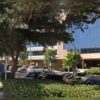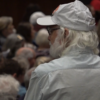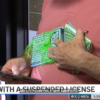October 26, 2014. The Richmond Times-Dispatch.
Poster-size fact sheets about local education, crime and transportation issues decorated the walls of a Union Presbyterian Seminary sanctuary last week, serving as reminder to about 150 people from Catholic, Protestant and Jewish congregations that local problems are numerous and complicated.
Representatives from 16 congregations and the seminary that span racial and geographic lines gathered last Monday for the 2014 Community Problems Assembly to decide which issue would be the next focus of Richmonders Involved in Strengthening our Communities, or RISC.
“When you look around greater Richmond, what makes you angry? What keeps you up at night?” asked outgoing RISC Co-president Chandra Wright.
Tashira Brown decried the “senseless violence that has plagued our city” and shared about when her teenage son and his friends left minutes before an employee of the McDonald’s on Nine Mile Road was shot in the parking lot in July. Michael Raymond Bailey Jr., 22, later died of his injuries.
Brenita Younger gave a passionate speech about fewer resources for her children attending Overby-Sheppard, the Richmond elementary school that took in an influx of students from now-closed Clark Springs and has had two playground fires in the past two years.
“When will our children really become our future?” she said, challenging both city leaders and group members gathered at the North Side seminary.
Tension follows the group as it addresses stakeholders — including public officials and civic leaders — on topics such as education, health care, criminal justice and affordable housing. The group does not seek to create long-term partnerships with the powers that be, but presses for results for those in the community.
Collectively, the nonprofit steers away from providing services to individuals, though many of its member congregations individually provide food or shelter to the community. RISC’s goal is to address root causes on a systemic level and demand answers and solutions, organizers say.
Rather than attacking a variety of issues at once, the group settles on one issue before settling on one action within that issue to change a part of a local system to aid people in the community.
Adding weight to the approach, the group draws large numbers from the community — 1,500 at its spring rally.
The nonprofit’s $110,000 budget is mostly from member dues, with a small percentage coming from local businesses and other community groups, said Charlie Summers, a former RISC board member and pastor of First Presbyterian Church, which is an active RISC member.
Several speakers at Monday’s assembly ended with the phrase “because justice … demands RISC,” a play on words to denote risk related to the group’s work. The group finished the motto in unison before breaking up into its members’ respective congregations to discuss which issue to address and cast votes based on how many members showed up to the event.
Education won by a landslide, initiating six months of research into problem areas in Richmond the group could address. Previously, the group went before the Richmond School Board for the creation of a intervention program for elementary school suspensions in 2010 and a $1 million truancy task force in 2005, after which the truancy rate dropped 15 percent, according to numbers provided by the organization.
Most recently, the group urged the Richmond City Council to follow through on the creation of an Affordable Housing Trust Fund, approved by the City Council in 2008 but left dormant without a dedicated revenue stream or an advisory board.
During the research phase, the group found that in 2011, 48 percent of Richmond residents paid more than 30 percent of their income on housing, the standard of affordability used by the U.S. Department of Housing and Urban Development. The group provided further numbers that indicated 22 percent of city households paid 50 percent or more of their income on housing.
After two years of negotiations with stakeholders and input from other groups invested in the issue, several members of the City Council pledged their support at RISC’s annual Great Nehemiah Action rally, where member congregations bring their people in force.
It’s at this rally where the tension mounts.
Council members lined up in front of the pulpit and were allowed only “yes” or “no” answers to questions about the policy and commitments to the cause. The council members attempted to explain their viewpoint but were asked to stick to “yes” or “no.” If the answer was not satisfactory to the crowd, a “deafening silence” would ensue, said Henrico County Supervisor Tyrone E. Nelson, a former RISC president.
“The whole process is not created to create friendships,” Nelson said of the group’s challenge to elected officials. “We need more organizations like RISC to be honest to hold leaders accountable.”
Nelson, who also is pastor of Sixth Mount Zion Baptist Church, a RISC member congregation, added that the group’s diversity and comfort with conflict makes it stand out from traditional faith-based advocacy groups.
“Faith groups aren’t really used to conflict. I think once you get past that you realize you have to have that to make stuff happen sometimes,” he said. “Not everybody wants to be responsive, but again that’s just a part of the process. … It’s a different approach you don’t see that often around here.”
Summers, the RISC president, said the tactic is used to get officials on the public record so that when the group follows up, it is armed with tangible promises.
“There is such a strong tendency to talk out of both sides of our mouths,” he said, adding that all invitees receive the list of questions beforehand. “When a group comes in and says, ‘Here’s another thing we want you to look at,’ it can get tense. … We see it as grass-roots democracy.”
When asked if the group is aggressive in its demands, Summers said, “Well, some faith groups get out on the streets with a bullhorn. I find that a lot more aggressive than anything we do. … We are direct.”
City Councilwoman Ellen F. Robertson, 6th District, worked closely with the group during the affordable-housing initiative, an issue she said she has been advocating for since the beginning of her tenure. She has spoken at two of the past three Great Nehemiah Action rallies and attended this year’s rally without speaking, she said. She called RISC’s research and contributions “exceptionally valuable” to the trust fund’s viability, but criticized the confrontational nature of the rallies.
“They bring good information to the table, but when it comes to the rallies I find it to be not productive,” she said, adding that some council members have told her they would continue to work with the organization but not return to the annual rallies. “It doesn’t lend itself to any meaningful educated conversation with their membership to understanding affordable housing and how governments are accountable for affordable housing. … ‘Yes’ or ‘no’ doesn’t work for me.”
The group will launch its research phase and narrow its focus area in the coming months before rallying in April.
“When we address some piece of the status quo, the natural flow of the community is to resist change,” Summers said, stressing that the group is not after donations toward a cause but action. “We ask for a change. We do not ask for a gift.”





